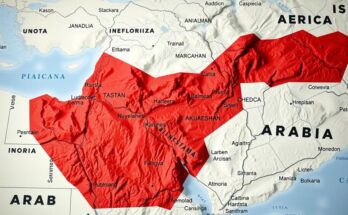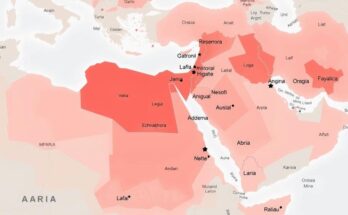The Jordanian-Syrian Free Zone experienced a significant increase in goods exported to Syria and Lebanon, totaling 214,000 tonnes in 2024, a rise from 150,000 tonnes in 2023. This growth reflects a 40 percent increase in trade activity and a burgeoning interest in investment opportunities, particularly in the automotive industry.
In 2024, the volume of goods that flowed from the Jordanian-Syrian Free Zone into Syria and Lebanon reached 214,000 tonnes, showing substantial growth compared to the 150,000 tonnes recorded in 2023. Director of the Jordanian-Syrian Free Zone, Irfan Khasawneh, stated that these goods were initially stored within the zone before being exported via the Nasib crossing. This uptick reflects a 40 percent increase in commercial activity, accompanied by a rising interest in investments, particularly in the automobile sector, which now boasts 90 car showrooms. Khasawneh reported that since December 8, 600 Jordanian trucks have entered Syria, primarily delivering food supplies and essential spare parts to cater to the needs of the Syrian populace. The operational efficiency in the Free Zone has ensured seamless transaction processes, with employees adequately prepared to manage any surge in truck volume and commodity flow.
The Jordanian-Syrian Free Zone functions as a critical trade conduit between Jordan and its neighboring countries, namely Syria and Lebanon. Established to enhance trade relations and economic cooperation, the zone has adapted to fluctuating market demands and geopolitical conditions. Recent developments, including the political changes in Syria, have allowed for a resurgence in trade activity, marking a post-conflict recovery phase, especially in the import of essential goods.
The recent statistics highlighting a substantial increase in goods exported from the Jordanian-Syrian Free Zone underscore the growing trade relationship between Jordan, Syria, and Lebanon. The 40 percent growth in commercial transactions and enhancement in logistical capabilities suggests a robust recovery and potential for future economic activity and investment in the region. The zone is positioned to serve as a vital link in addressing both economic needs and investment opportunities in the automobile sector and beyond.
Original Source: www.jordantimes.com




